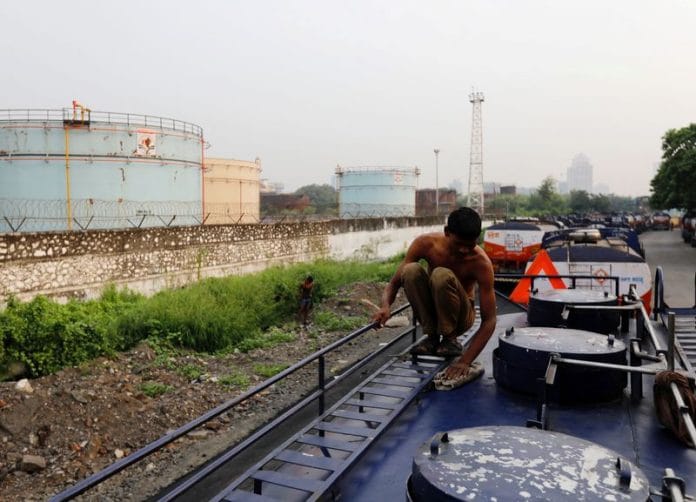By Nidhi Verma
NEW DELHI (Reuters) – Indian refiner Hindustan Petroleum Corp Ltd is meeting up to 23% of its oil needs through discounted Russian grades, its chairman Pushp Kumar Joshi said at the company’s annual shareholder meeting on Friday.
Indian refiners, which rarely used to buy Russian oil, have been snapping up discounted barrels after many Western countries shunned purchases from Moscow following its invasion of Ukraine.
HPCL’s Russian oil intake is limited by the configuration of its refineries, Joshi said, but the company is maximising the use of these cheaper so-called opportunity crudes, he added, helping “ringfence” it from risks arising from high oil prices.
State-controlled HPCL operates a 190,000 barrel per day (bpd) Mumbai refinery in Western Maharashtra state and a 300,000 bpd Vizag refinery in southern state of Andhra Pradesh. It is also building a 180,000 bpd refinery and petrochemical complex in the desert state of Rajasthan.
Joshi said HPCL hopes to soon commission secondary units at the Vizag refinery to boost its distillate yields.
The company is planning capital expenditure of 750 billion rupees ($9.08 billion) in the next five years including on refinery upgrades and natural gas and renewable projects.
About a quarter of the planned spend would be used for green initiatives to help HPCL meet its 2040 net zero goal. The company plans to transfer all of its green and emerging businesses into a new subsidiary, Joshi said.
As well as selling conventional fuels such as gasoline, gasoil, jet fuel and cooking gas in India, HPCL is also a key supplier of lubricants, which it currently exports to about 20 countries. It is looking to boost output capacity to expand its exports.
Joshi said in-principle approvals had been granted to explore options including carving out the lubricant business to unlock value, subject to approvals from competent authorities.
($1 = 82.6277 Indian rupees)
(Reporting by Nidhi Verma; Editing by Kirsten Donovan)
Disclaimer: This report is auto generated from the Reuters news service. ThePrint holds no responsibilty for its content.






